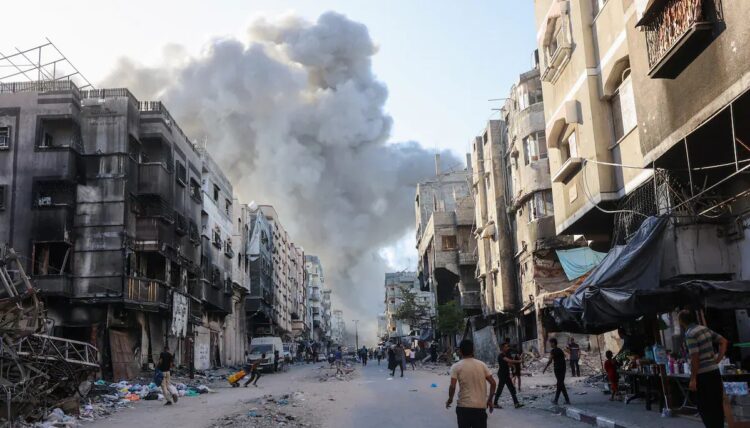Israel is on high alert, anticipating imminent attacks from Iran’s allies, Hezbollah terrorists in Lebanon, the Houthis in Yemen, and Iranian military forces. This development follows recent retaliatory actions by Israel after a rocket attack in the Golan Heights, which resulted in the deaths of twelve children. Prime Minister Benjamin Netanyahu vowed to strike back forcefully against the “axis of evil” during a cabinet meeting on Sunday.
“We are striking every one of its arms with great force,” Netanyahu declared, emphasizing Israel’s readiness to defend itself against any aggression. He warned that Israel would “exact a heavy price” for any attack. The escalation follows the assassination of Hamas leader Ismail Haniyeh and Hezbollah commander Fuad Shukr, actions that have further inflamed tensions in the region.
Despite efforts by the US and Western allies to broker peace and avoid an all-out war, Iran has dismissed attempts to de-escalate. The Wall Street Journal reported that Iranian leadership informed Arab leaders of their indifference to the potential for a wider conflict. In response, the Pentagon has deployed additional warships and F-22 stealth fighters to the region, signaling strong support for Israel.
Jordan, caught in the crossfire of earlier missile attacks, continues diplomatic efforts to reduce tensions. Foreign Minister Ayman Safadi recently visited Tehran, stressing Jordan’s stance against becoming a battlefield. He reiterated Jordan’s commitment to the Palestinian cause and condemned Israeli actions that impede peace.
The conflict’s intensity has surged since the October 7 attack by Hamas on Israel, leading to significant casualties and a forceful Israeli military response in Gaza. As Israel and the US brace for potential Iranian attacks, regional and global stakeholders are urging both sides to seek dialogue and prevent further escalation.

















Comments